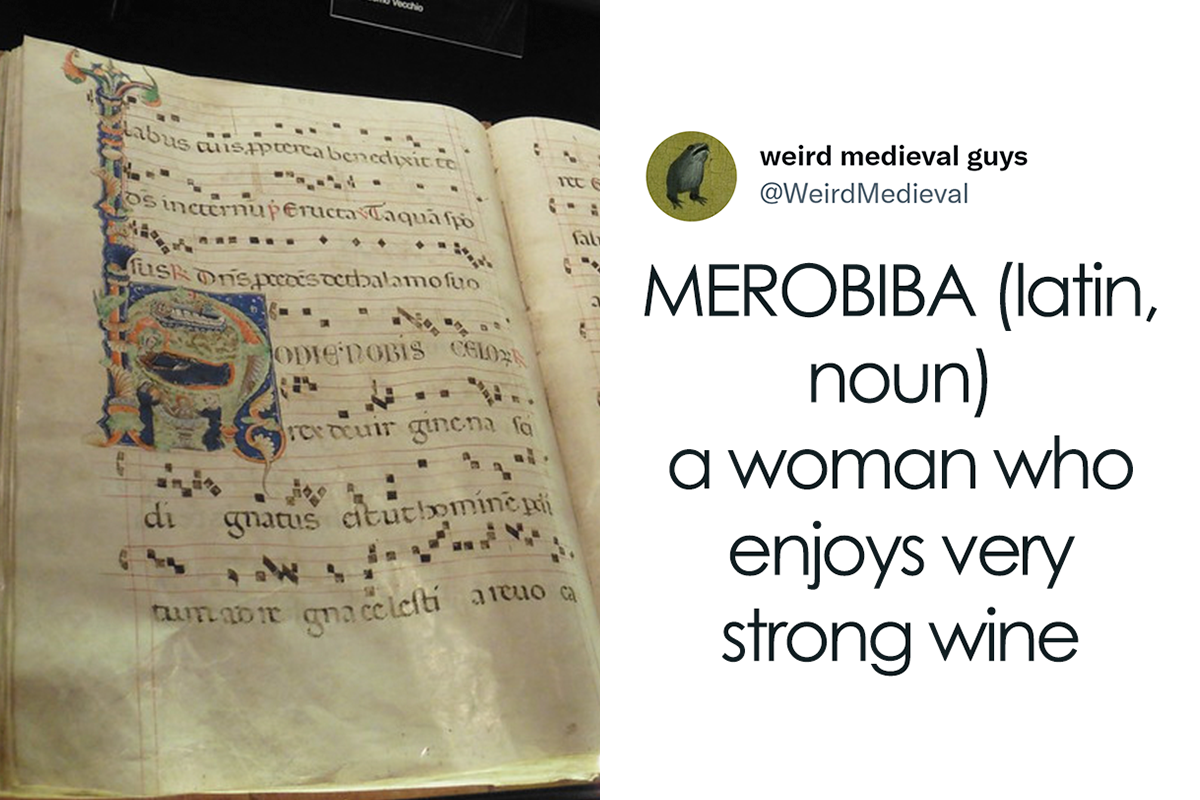
People Are Amused By These 23 Very Medieval Words That Either Sound Funny, Or They Mean Oddly Specific Things
Methinks, sire, verily good morrow, prithee, gadzooks gobbledigook, oh fair gentlefolk, tell me thiseth do thou liketh?
I have no idea what I just said, but you have to admit, old English is pretty cool.
And there’s more than just linguists or historians who’ll agree here. A Twitter thread has recently started going viral for its awesome list of medieval words that, no matter when you live, you just gotta use in your speech.
More Info: Twitter
You gotta admit, medieval speech is awesome. If anything, for its amusing language, but also for how oddly specific or just downright funny it can be
Image credits: michael kogan (not the actual photo)
So, there’s this Twitter page called Weird Medieval Guys (@WeirdMedieval), which identifies itself as a “purveyor of quality weird dudes from approximately the 5th to the 15th century, a.d.”
In other words, it’s a page focused on memes, you can say, that revolve around bizarre medieval art, mostly showcasing some form of being. Very weird being. It’s run by a self-proclaimed werewolf named Olivia M. Swarthout.
Anywho, one of the page’s recent tweets featured a sizable list of medieval words that were described as being awesome, but I assure you it’s more than that. If anything, it’s comedy at its finest.
A Twitter page recently shared a list of 23 examples of medieval words that tickled many a folk’s funny bone
Image credits: WeirdMedieval
Image credits: WeirdMedieval
Image credits: WeirdMedieval
Image credits: WeirdMedieval
Image credits: WeirdMedieval
The thread is populated with medieval English words of English and Latin origins. If the word itself doesn’t elicit at least a smile, the meaning sure will. For instance, the word merobiba doesn’t say much, but its literal meaning is “a woman who enjoys very strong wine.” The nearly unutilizable specificity of the linguistic construct can’t be understated here.
The list includes everything from practical to derogatory to funny to here’s some knowledge you’ll probably only ever use once kinds of words
Image credits: WeirdMedieval
Image credits: WeirdMedieval
Image credits: WeirdMedieval
Image credits: WeirdMedieval
Image credits: WeirdMedieval
And you better believe that people used merobiba. Google Ngram alone registered peak usage back in 1880. Sure, it’s not medieval times, but no book ever mentioned the word earlier than that, and if a dictionary contains the word, there has to be some predominant usage of the word to justify it. And it gets better.
Image credits: WeirdMedieval
Image credits: WeirdMedieval
Image credits: WeirdMedieval
Image credits: Hans Splinter (not the actual photo)
There are a total of 23 words in this thread, and they ranges from practical (entrails of deer, noumbles, and a lover who has no money, sterilis amator) to derogatory (a woman who speaks too much, lingulaca) to downright funny (to defile, besmut) to here’s some knowledge you’ll probably only ever use once (a lover of gourds and squash, cucurbitarius). Oh, there was also methful: peaceful, quiet and modest. Breaking Bad begs to differ.
And it was all with references—very old, yet very legit references
Image credits: WeirdMedieval
Image credits: WeirdMedieval
And before you go calling shenanigans on the thread, the page did provide references. The words of Latin origins were selected from the dictionary of syr Thomas Eliot knyght, dated 1490?-1546, while the English words came from Herbert Colridge’s 1862 Dictionary of 13th Century Words.
The thread resonated with a lot of folks online. Over 202,000 people, to be precise, as the likes counter shows. And over 30,000 liked it so much, they retweeted it.
And folks had a lot to say in that regard, especially since the thread got over 202,000 likes
Image credits: Just_1nCase
Image credits: gr33n_as_grass
Image credits: djplayingbach
This spawned a number of other suggestions for the list in the comments, like fifflefaffle, which means to talk nonsense, and overmorrow, the day after tomorrow.
Others took a jab at some of these words, saying that “Pinterest mommies” will be quick to use them as names for their kids. Which, you gotta admit, peekgoose would be a good name. Probably.
Image credits: stevegrant2020
Image credits: 360barking
Image credits: Kalimatai
Yet others also figured that some of these might sound a bit inappropriate in certain environments, prompting a quick visit to HR (and maybe the local police station) to explain what you meant by methful.
You can take a gander at this thread of tweets in context here, but be sure to leave some of your suggestions, or to react to anything mentioned in this article in the comment section below!
I see one "methful" meaning peaceful. Today, if you are full of meth, you are anything but peaceful.
well marojuanaful doesn't have the same ring to it.
Load More Replies..."besmut" is also very similar to German. Smut is "Schmutz" (dirt), to besmut is "beschmutzen". We still retained our "overmorrow", too: the day after "morgen" (tomorrow) is "übermorgen", still very much in use. I love finding these connections!
We also have overmorgen in Dutch, perfectly normal word for us. Its counterpart is also used frequently: eergisteren, the day before yesterday or ereyesterday in archaic English.
Load More Replies...I raise you a word that just plain sounds funny (definition from Wiktionary): "wlonk (plural and weak singular wlonke) noble, highborn. fair, beautiful, gorgeous. fine, excellent, splendid. proud, boastful."
Going to fifflefaffle to my regular word usage. I often tell my kids to "stop faffing about" which we used in Northern Ireland for goofing off, or lazing about.
cēse lēoffmann (or lēoffwíf) that's old English
Load More Replies...Ages ago, I came across an Old English phrase, Ut caere. It's not a direct translation obviously, but its meaning is "lying awake before dawn and worrying".
I see one "methful" meaning peaceful. Today, if you are full of meth, you are anything but peaceful.
well marojuanaful doesn't have the same ring to it.
Load More Replies..."besmut" is also very similar to German. Smut is "Schmutz" (dirt), to besmut is "beschmutzen". We still retained our "overmorrow", too: the day after "morgen" (tomorrow) is "übermorgen", still very much in use. I love finding these connections!
We also have overmorgen in Dutch, perfectly normal word for us. Its counterpart is also used frequently: eergisteren, the day before yesterday or ereyesterday in archaic English.
Load More Replies...I raise you a word that just plain sounds funny (definition from Wiktionary): "wlonk (plural and weak singular wlonke) noble, highborn. fair, beautiful, gorgeous. fine, excellent, splendid. proud, boastful."
Going to fifflefaffle to my regular word usage. I often tell my kids to "stop faffing about" which we used in Northern Ireland for goofing off, or lazing about.
cēse lēoffmann (or lēoffwíf) that's old English
Load More Replies...Ages ago, I came across an Old English phrase, Ut caere. It's not a direct translation obviously, but its meaning is "lying awake before dawn and worrying".

 Dark Mode
Dark Mode 

 No fees, cancel anytime
No fees, cancel anytime 


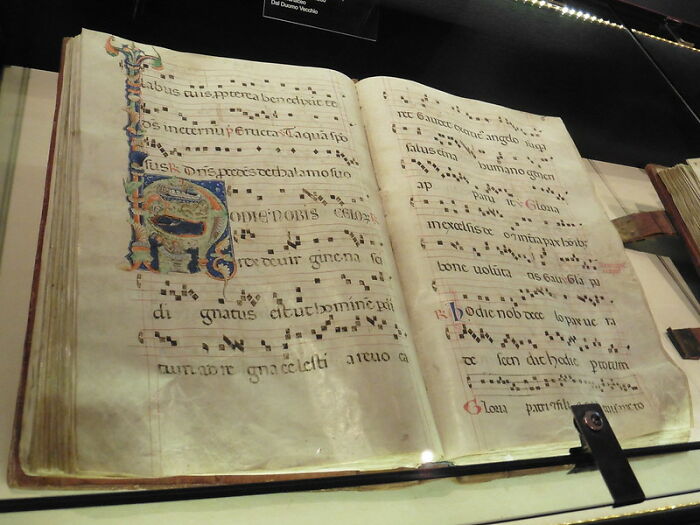
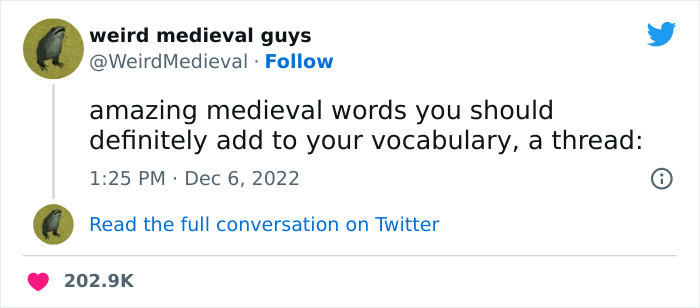
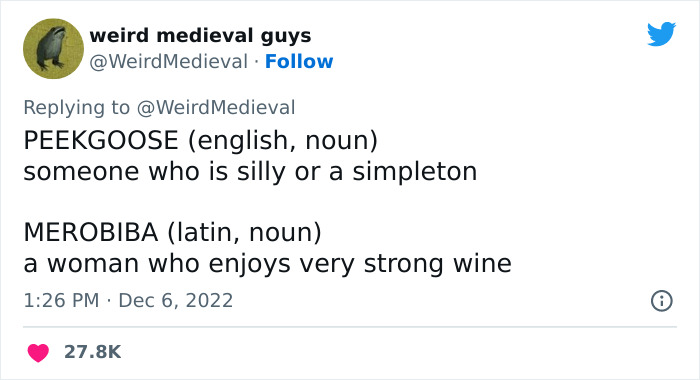
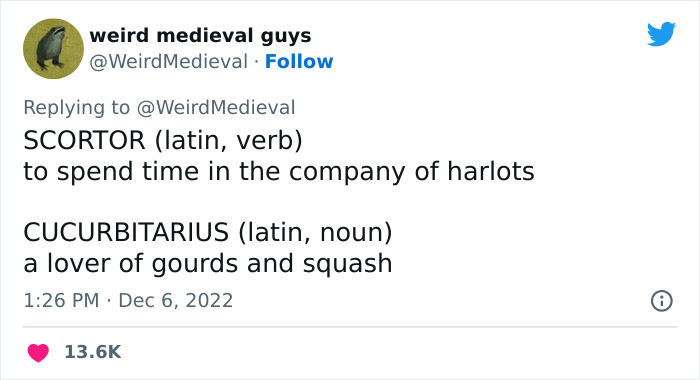
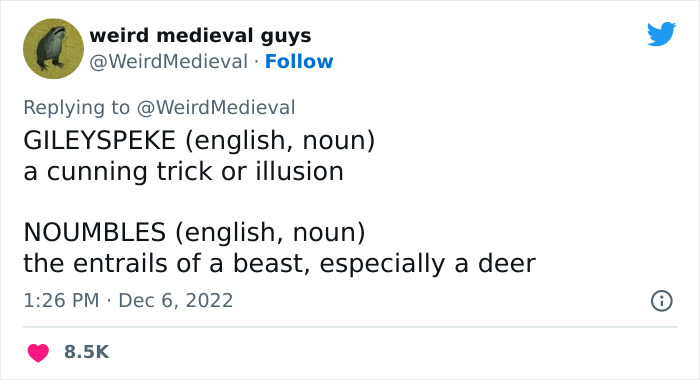
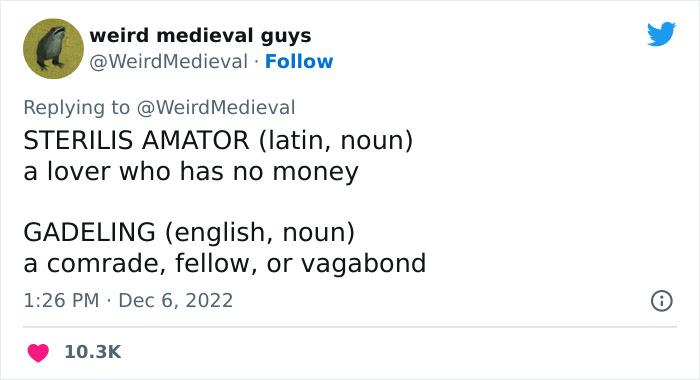
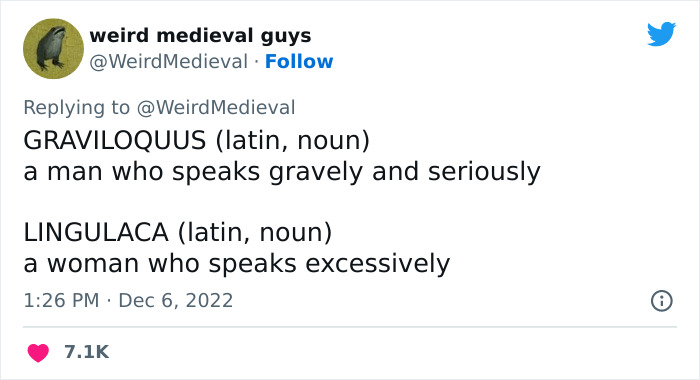
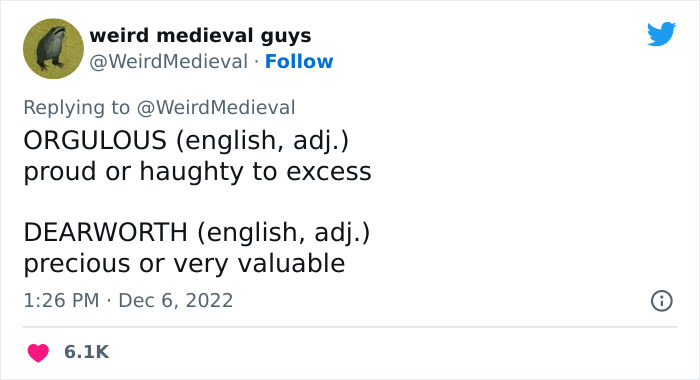
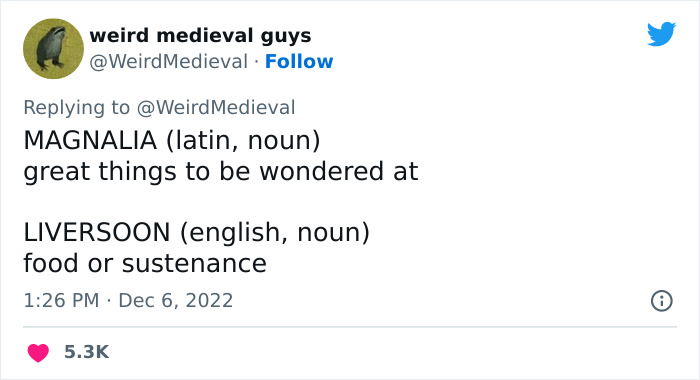
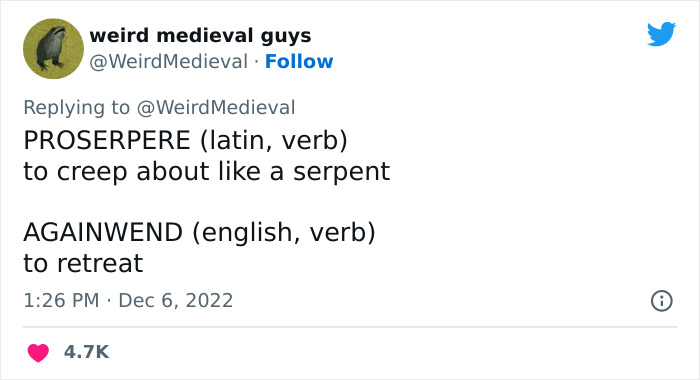
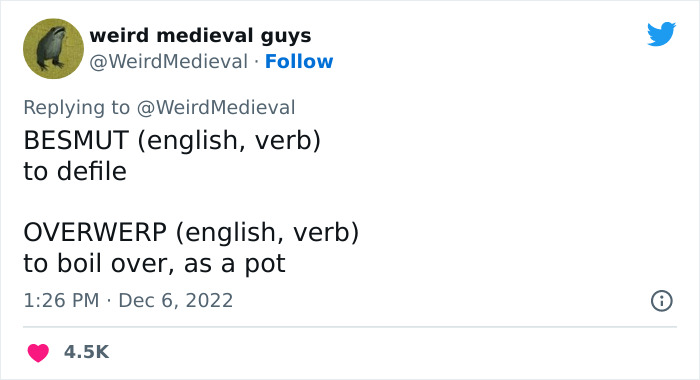
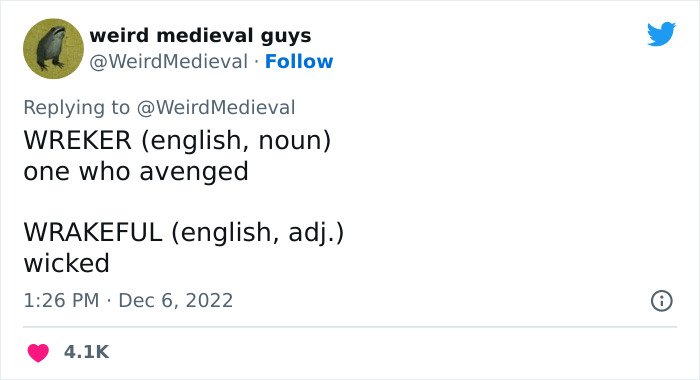
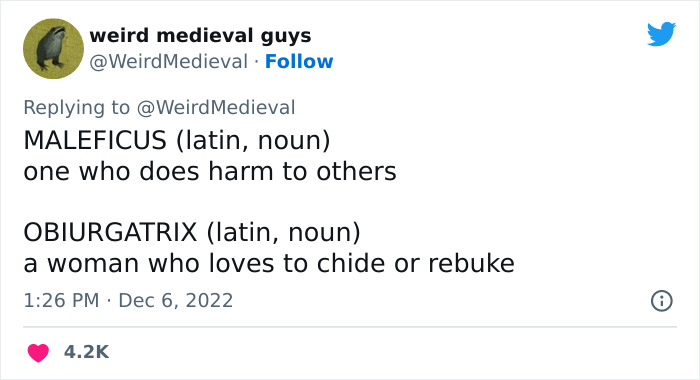
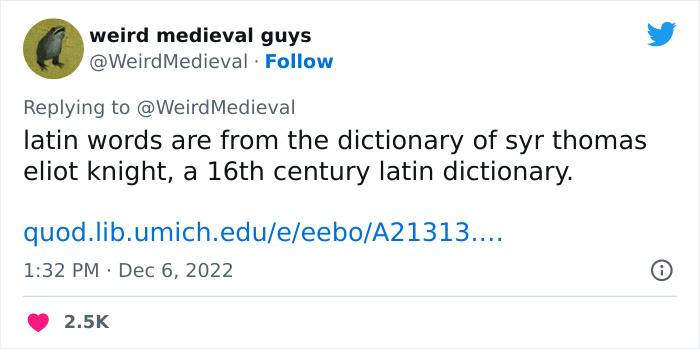
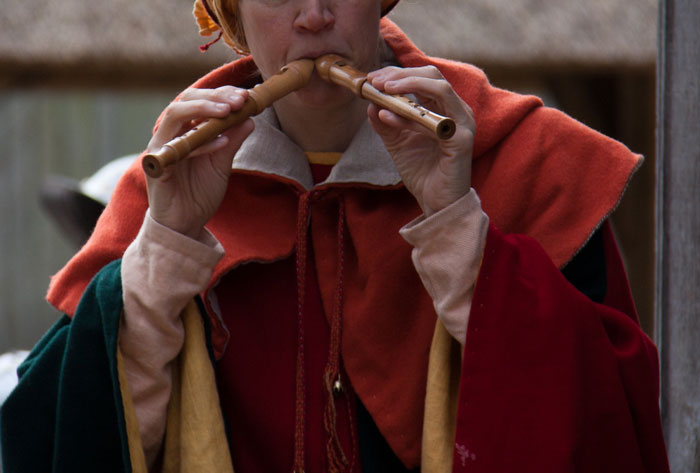
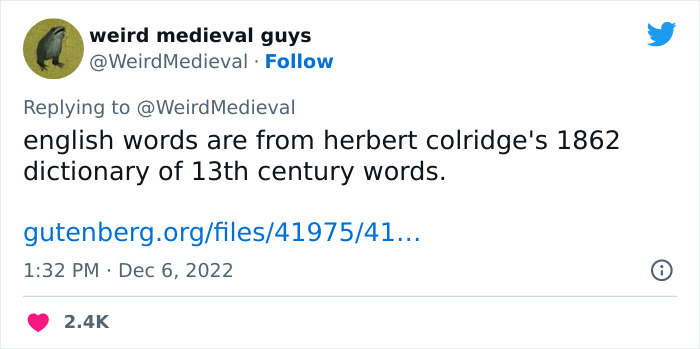
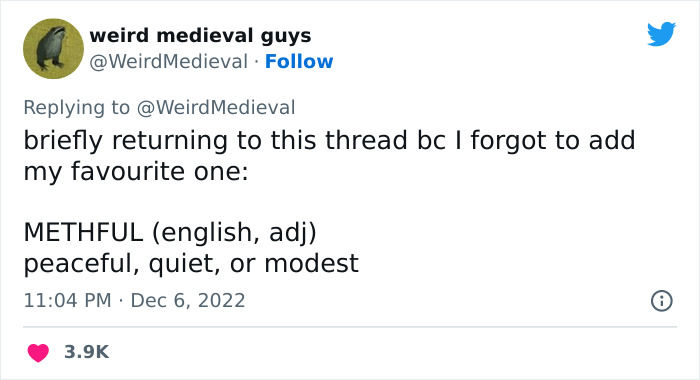
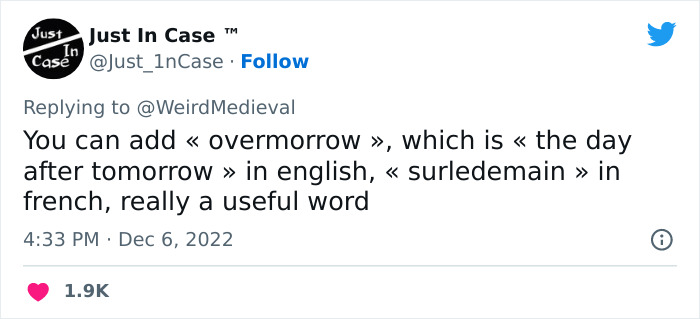
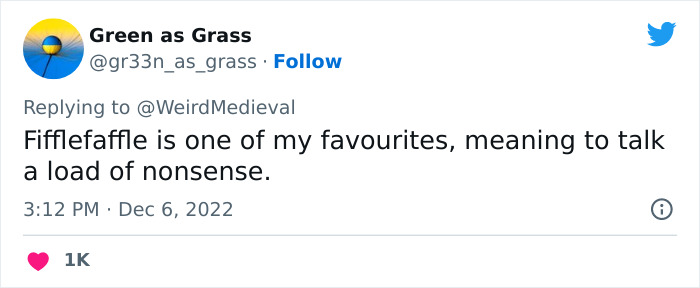

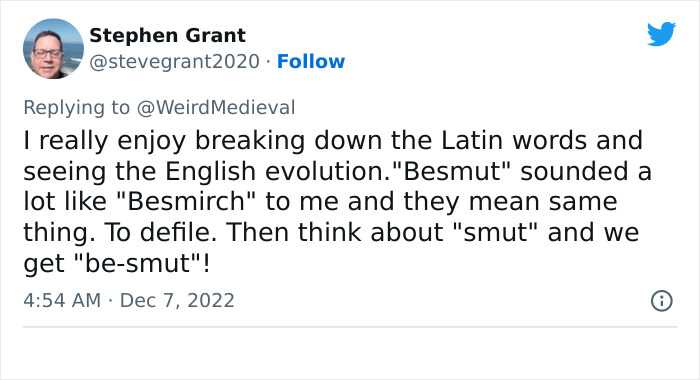
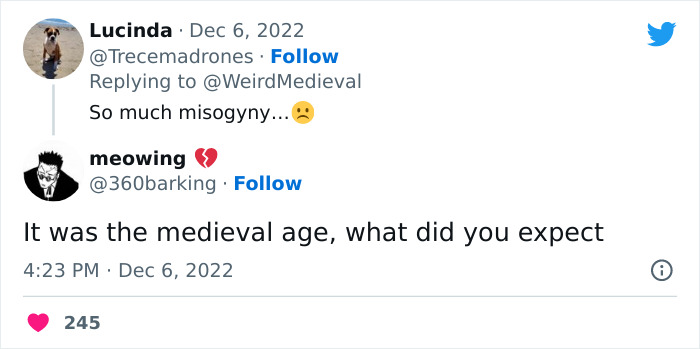









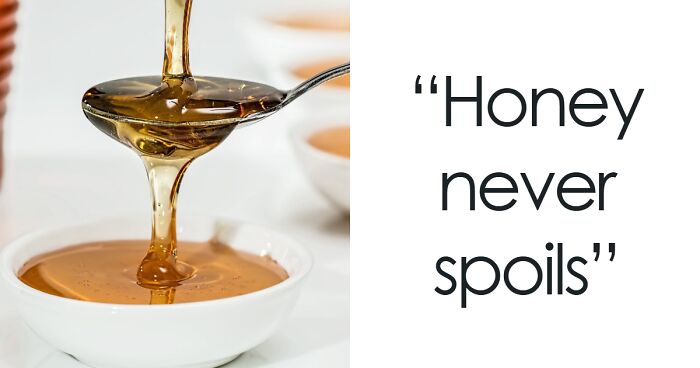










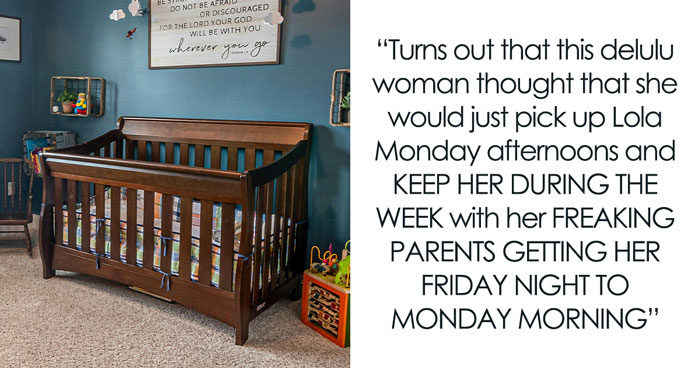






137
27